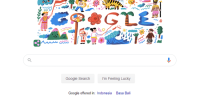Cara pemakaian Fair and Lovely di malam hari sangat mudah untuk dilakukan. Tapi pada kenyataannya masih banyak yang tidak mengetahui cara penggunaannya dengan benar. Kebanyakan dari mereka mengaplikasikan krim ini secara sembarangan, alhasil tidak ada perubahan pada wajah meskipun rutin di gunakan setiap hari.
Untuk itu kali ini Angkasa.co.id akan membahas tentang cara pemakaian Fair and Lovely di malam hari dengan benar agar kulit wajahmu semakin cerah dan membuatmu semakin percaya diri dalam menjalani aktivitas sehari hari.
Manfaat Fair and Lovely
Sebelum membahas cara pemakaian Fair and Lovely di malam hari, ketahui dulu berbagai manfaat jika menggunakan krim pencerah wajah ini. Berikut manfaat yang bisa kamu dapatkan ketika menggunakan Fair and Lovely.
• Memperlambat produksi melanin dalam tubuh
• Menyamarkan bekas jerawat berupa bintik hitam
• Mengangkat sel kulit mati pada wajah
• Mempercerah kulit wajah
• Berfungsi untuk meratakan warna kulit
Itulah berbagai manfaat yang akan kamu dapatkan jika menggunakan Fair and Lovely. Namun perlu di ingat, semua manfaat di atas dapat kamu peroleh jika dalam menggunakan krim Fair and Lovely dengan benar.
Untuk mengetahui cara pemakaian Fair and Lovely di malam hari yang benar kamu dapat mengikuti langkah-langkah berikut ini.
Cara pemakaian Fair and Lovely di malam hari
Sebagai krim pencerah , umumnya Fair and Lovely digunakan dua kali sehari. Yaitu pada saat pagi hari dan malam hari setelah menjalani rutinitas. Tetapi kali ini Angkasa.co.id akan menjelaskan Cara pemakaian Fair and Lovely di malam hari. Berikut adalah cara memakai Fair and Lovely di malam hari.
1. Bersihkan Wajah
Langkah pertama sebelum pemakaian Fair and Lovely di malam hari, cucilah muka dengan metode double cleansing. Kamu sebaiknya membersihkan wajah menggunakan kapas yang telah diolesi micellar water, milk cleanser, atau jenis bahan pembersih lainnya.
Setelah itu, lanjutkan dengan mencuci muka menggunakan sabun yang sesuai dengan jenis kulit mu. Bilas sampai bersih, dan keringkan dengan menepuk-nepuk wajah dengan lembut.
2. Gunakan Toner
Fungsi toner adalah untuk menyeimbangkan tingkat pH kulit, mengangkat sel kulit mati, dan mencegah timbulnya jerawat. Pastikan Anda menggunakan toner dengan bahan aktif yang tepat. Dengan demikian hasil yang diperoleh bisa lebih optimal.
3. Gunakan Serum Wajah
Tingkat kekentalan serum biasanya lebih rendah dari krim Fair and Lovly. Disarankan untuk menggunakan perawatan kulit harian dari yang paling cair (ringan) hingga yang paling kental (padat). Artinya, Kamu perlu memprioritaskan penggunaan serum, kemudian dilanjutkan dengan krim Dair and Lovely.
4. Gunakan Fair and Lovely secukupnya
Oleskan Fair and Lovely secara merata ke kulit wajah. Caranya dengan menerapkan metode lima titik menggunakan ujung jari di dahi, hidung, dagu, dan kedua pipi. Dengan cara ini, jumlah Fair and Lovely yang kamu gunakan tidak terlalu banyak atau terlalu sedikit. Hasilnya bisa lebih optimal.
5. Hindari Bagian Tertentu
Fair and Lovely mengandung beberapa zat aktif yang bisa membuat kulit lebih sensitif. Bagian kulit wajah yang berpotensi menjadi lebih sensitif jika terkena krim ini adalah kelopak mata, lipatan di sekitar lubang hidung, dan tepi bibir. Oleh karena itu, sebaiknya hindari mengoleskan krim malam pada beberapa bagian tersebut.
Itulah cara pemakaian Fair and Lovely di malam hari yang benar. Dengan menerapkan cara di atas secara rutin dan konsisten maka cepat atau lambat kulit wajahmu akan lebih cerah. Tapi jika menimbulkan gejala iritasi maka hentikan penggunaan krim ini dan berkonsultasilah pada dokter.
Cek Berita dan Artikel yang lain di Google News







